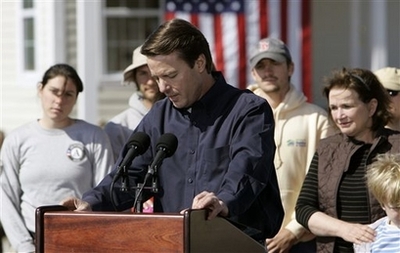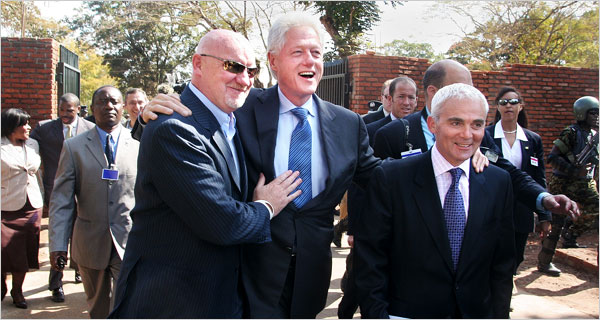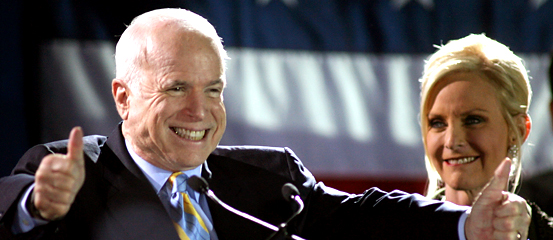
“It’s hard to speak out for change when you feel like your voice is not being heard. But I do hear it. We hear it. This Democratic Party hears you. We hear you once again.
And we will lift you up with our dream of what’s possible: one America — one America that works for everybody; one America where struggling towns and factories come back to life, because we finally transformed our economy by ending our dependence on oil; one America where the men who work the late shift and the women who get up at dawn to drive a two-hour commute and the young person who closes the store to save for college, they will be honored for that work; one America where no child will go to bed hungry, because we will finally end the moral shame of 37 million people living in poverty; one America where every single man, woman and child in this country has health care; one America with one public school system that works for all of our children; one America that finally brings this war in Iraq to an end and brings our servicemembers home with the hero’s welcome that they have earned and that they deserve.
Today, I am suspending my campaign for the Democratic nomination for the presidency. But I want to say this to everyone: with Elizabeth, with my family, with my friends, with all of you and all of your support, this son of a mill worker is going to be just fine. Our job now is to make certain that America will be fine.“
Senator John Edwards calls it quits. [Transcript, Obama response, Clinton response.] As I’ve said a few times now, Edwards has run a quality campaign focusing on the important and neglected issue of poverty’s persistence, and he should be applauded for it. And, if nothing else, he’d make a great attorney general in the next Democratic administration. And, now, there are two…
While he left the race on his own terms this morning, my guess is Senator Edwards will endorse Obama sometime in the relatively near future (although perhaps after Super Tuesday.) Even if calling Clinton “the candidate of the status quo” in the New Hampshire debate a few weeks ago didn’t telegraph his preference, I’m guessing Clinton’s anti-Edwards robo-calls in South Carolina probably rankled. (And Edwards campaign manager Joe Trippi is on the record as no friend of Mark Penn.) So, let’s hope he comes out for Senator Obama sometime relatively soon.
That being said, I’m not sold at all on the notion that Edwards supporters will now drift into the Obama camp. True, a sizable amount of Edwards voters are likely anti-Clinton votes. But, I’m guessing an equally sizable number were drawn to Edwards’ “I’m a fighter” message, in which case they might prefer Clinton’s recent pit bull tactics over Obama’s message of unity. And, of course, Edwards’ base was mostly white working-class and rural voters, and — while Obama did well with this demographic in Nevada — thus far said group has leaned toward Clinton. So, it’s an open question.
If nothing else, though, a 2-person race should help to mitigate the Florida-Michigan delegate issue. And it should make tomorrow’s debate that much more interesting…



